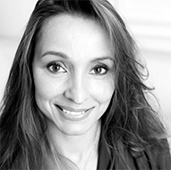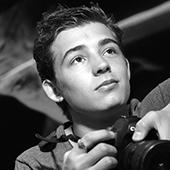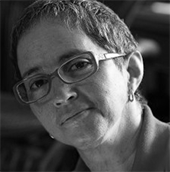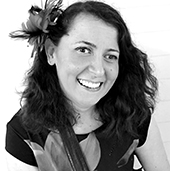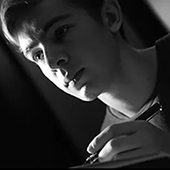Australia artist Belinda Mason’s work has focused on taboo social issues that explore the very personal and sometimes difficult subjects of grief, body image, identity and family.
For more than 17 years Mason’s has conceptualised, produced and presented high quality socio-cultural engaged art exhibitions and events for national and international audiences.
Mason’s exhibition of photographs titled Intimate Encounters concerning sexuality and disability, toured to every metropolitan and key regional city throughout Australia – 32 venues from 2001 to 2007 and to nine international cities from 2002 to 2014 including London, Barcelona, New York, Toronto and Auckland. Intimate Encounters toured with the assistance of Accessible Arts Australia and Visions of Australia.
The exhibition of media and photomedia titled Unfinished Business by Mason exposed the impact of disability in Indigenous communities throughout Australia. Though Unfinished Business’s was produced in Australia it was internationally premièred at the Palais des Nations in Geneva, 2013. Attending the exhibition was the Director General of the United Nations in Geneva, and the Australian Ambassador to the United Nations. Their offices organised for Unfinished Business to coincide with the Committee on the Rights of Persons with Disabilities, with the Human Rights Council, 24th Session. Unfinished Business was supported by the First People Disability Network and the Department of Foreign Affairs and Trade, through the Australian Mission in Geneva and their Aboriginal and Torres Strait Islander Program.
Other exhibitions include invited commissions. In 2013, the Casula Powerhouse Arts Centre, Liverpool NSW, commissioned Mason to produce a series of 3D lenticlars photographs to explore her concept of women in sport. She selected women from diverse experiences including a 102 year old athlete who still competes and a Muslim woman who represents NSW in the Australian Football League. Two of these images are on permanent display at the building of the United Nations, Geneva.
A recent collaboration was last year with artist Dieter Knierim. The exhibition was titled Outing Disability. This project engaged the Lesbian, gay, bisexual, transgender, intersex and queer (LGBTIQ) people with disability. These groups are often excluded from both the disability and LGBTIQ communities. The exhibition exposed a multiple of discriminations including inhibiting LGBTIQ’s ability to experience sexuality, sex and gender as positive aspects of their lives.
While Mason’s exhibitions are her core focus, she is also submits her work to significant art prizes. In 2008 Mason’s peers award her the riches photography prize in Australia, ‘The Moran Prize’ of $50,000 with her photograph titled Four Generations (2008). Her digital photograph Beyond the Burn series (2004) was awarded the 2008 Kodak Salon Centre for Contemporary Photography and the Perth Centre for Photography 2008 Iris Award. Her Images from the Maningrida series won her the 2008 Human Rights Award for Photography. She came third in the prestigious International Spider Awards for Photojournalism in 2008.
Other national photographic awards including being a finalist in Head On (2004, 2005, 2006, 2008,), Josephine Ulrick and Win Schubert Photography Award (2002, 2006, 2012), the Olive Cotton Awards (2007, 2008), the Iris Award (2004, 2007, 2009 and 2010), The Moran Prize (2012) and VIVID (2014), The Blake Prize (2009,) and the winner of BHP Images of the Outback Award in 2003, 2004, and 2012.
Her photographs are held in national and international museums and galleries including Shape Arts Gallery UK, Museum of Sex, New York, the Australian Commercial and Media Photographers Collection and the Australian Institute for Aboriginal and Torres Strait Islander Studies, Canberra.
Mason is also regularly invited to speak at professional conferences and events such as the Arts Activated Conference in 2011 and 2014, Australian Institute of Professional Photography Blowfish Conference 2010, Australian Centre of Photography 2006, International Festival of Photography in Sydney 2004 and the Melbourne Festival of Arts 2002.
